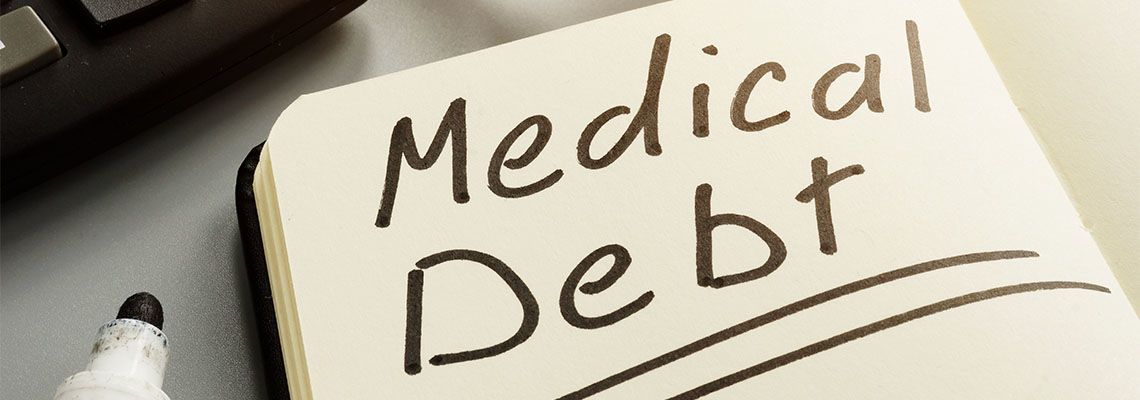
Medical Debt and Bankruptcy
Overwhelming medical debt is one of the major reasons people file for bankruptcy. Bankruptcy sometimes carries a largely negative connotation—many people automatically equate bankruptcy with failure. However, nothing could be further from the truth.
In California, even a liquidation bankruptcy, known as Chapter 7, provides for generous exemptions, and people can usually retain their homes and other essentials of life so they can move forward with a fresh start. Another option is a reorganization bankruptcy, called Chapter 13, which allows the filer to pay off their debts according to their ability to do so.
If your medical debts are overwhelming you in or around Los Angeles, California, contact the bankruptcy legal team at The Orantes Law Firm. We can guide you through the process to obtain a fresh start in life. We proudly serve clients not only in Los Angeles County, but in Orange County as well.
Will Bankruptcy Discharge Medical Debts?
The answer is simple – yes, it will. Bankruptcy will discharge almost all unsecured debt obligations. What bankruptcy can’t discharge are some tax obligations, student loans, and alimony and child support payments. Medical debt is just like credit card debt. It can certainly be discharged.
Does Medical Debt Affect My Credit Score?
The answer again is yes. Any debt that is unpaid will have an effect, usually dramatic, on your credit score. In addition, you will no doubt be hounded by bill collectors on the phone, via text and email, and you may even be subject to having your wages garnished. Worse, they can file a lawsuit against you, which can pose numerous obstacles. If you don’t respond to the lawsuit, your creditors may seek a default judgment and then seize your assets.
Which Bankruptcy Route Is Best?
Filing for bankruptcy will, first of all, stop your creditors and bill collectors from contacting you. Which path to take—Chapter 13 or Chapter 7—depends in a large part on your income.
Chapter 13 is known as the wage-earner’s option. Chapter 7 is the liquidation option. One factor that separates the two is the income you have. Both chapters are based on an income means test. If you make too much money, which varies from year to year based on inflation and other factors, you have to file for Chapter 13. If you have no income or an income below the threshold, you can file for Chapter 7.
Chapter 13 Bankruptcy
In a Chapter 13 filing, you get to reorganize all your unsecured debts, including your medical obligations, and make a monthly payment to the bankruptcy trustee, who will then split the money among your creditors. How this works is by figuring your disposable income, which means what you have left after you’ve paid for the essentials of life—rent/mortgage, cars, food, insurance, education, child care, and so on.
What’s left over will be what you owe to the trustee. Your payments will then go on for three to five years. Generally speaking, this means that your debt load will be drastically lowered, and you’ll be discharged from your obligations when the payments are successfully completed.
Chapter 7 Bankruptcy
Chapter 7 is a much quicker option, but keep in mind that your income must fall below the filing threshold to qualify. A Chapter 7 bankruptcy exposes some of your assets to be sold to pay off creditors, at least partially.
California allows generous equity exemptions for homes, but if you have an expensive car or even a second car, that could be subject to being sold, or your being asked to come up with a payment representing the equity you have. You need to consult with your bankruptcy attorney to determine which assets you can hold onto and which might be vulnerable.
Pros & Cons of Medical Bankruptcy
You can always consider and pursue options other than bankruptcy to rid yourself of medical debt. Perhaps you can work out a deal with the provider or providers to whom you owe the debt, or maybe you can apply for some sort of public assistance.
Bankruptcy, however, is a federally-protected right to leave your debts behind you and move on in life. You really need to speak with a bankruptcy attorney when debt is overwhelming you and creditors are on you night and day. After discharge from bankruptcy, you’ll be surprised at how fast your credit score improves and your options open up once again.
Discover Your Options Today
If medical debt—or any debt—is overwhelming you, contact us immediately at The Orantes Law Firm. We will walk you through the options available to you and then navigate you through the system so you can move forward with confidence. We proudly serve clients throughout Los Angeles County and Orange County, including Irvine.